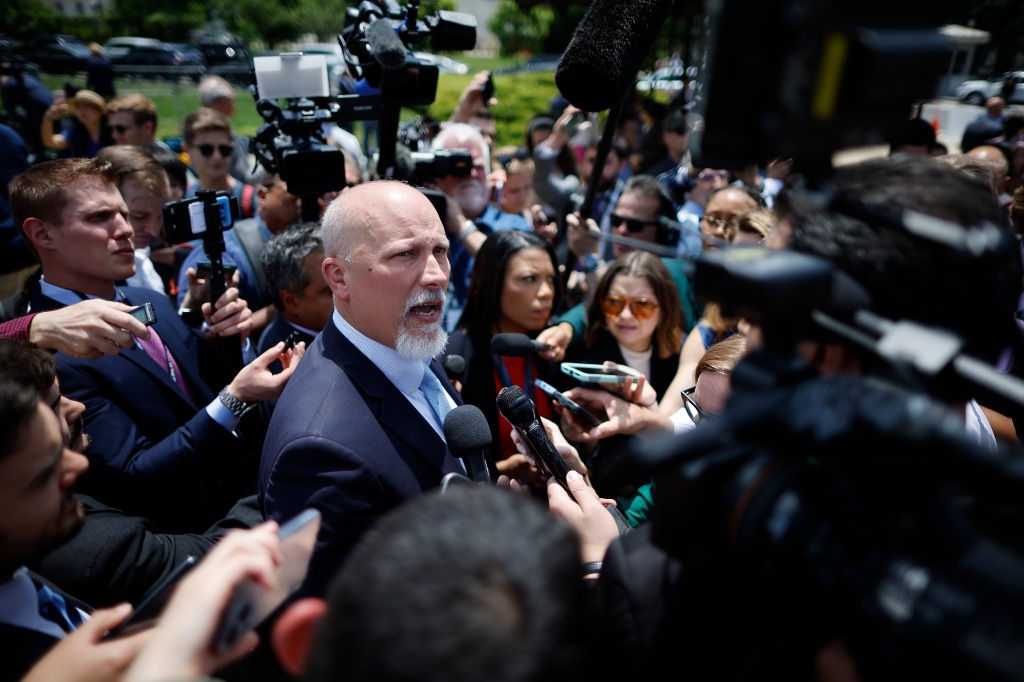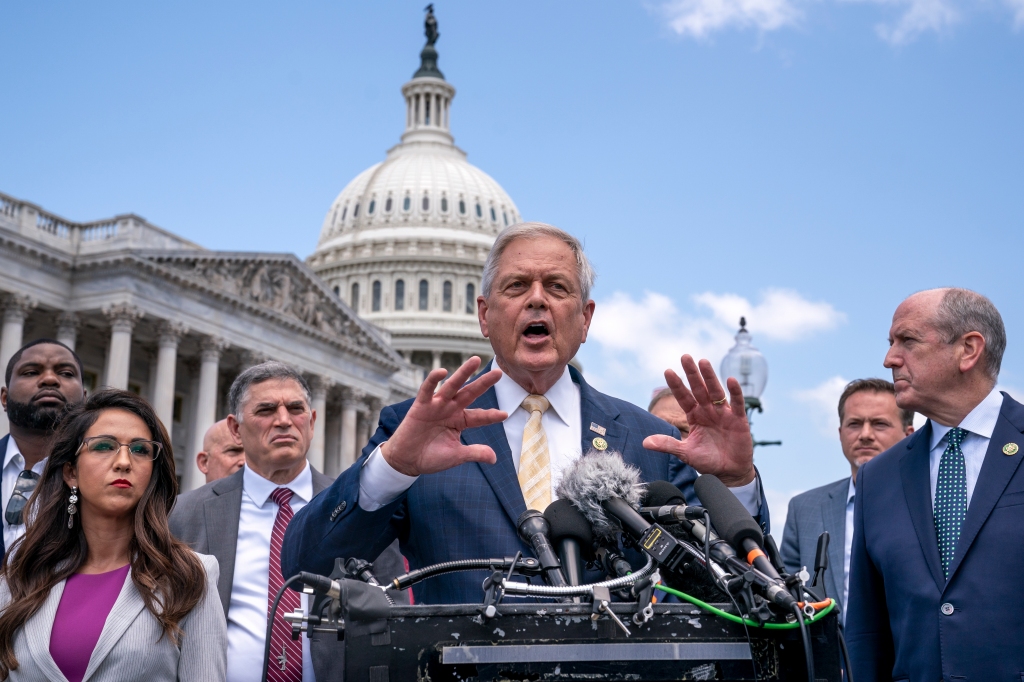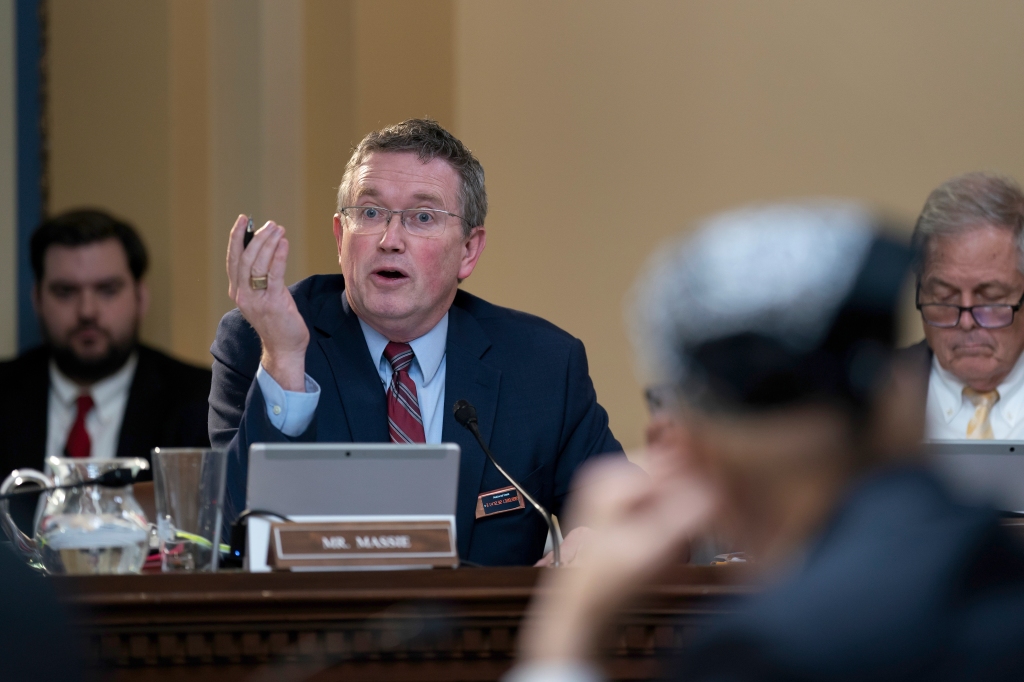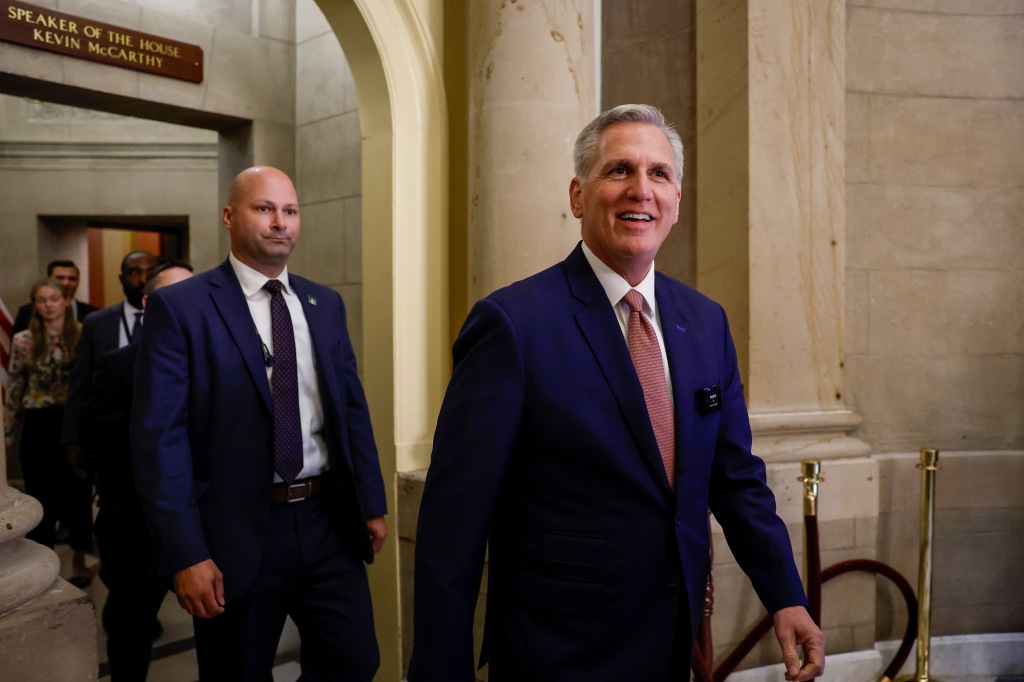House Rules Committee narrowly advances bill to raise debt ceiling
The House Rules Committee narrowly advanced a bipartisan bill Tuesday to raise the federal debt ceiling to $31.4 trillion, despite Republican opposition.
The GOP-controlled committee voted 7-6 to move the 99-page piece of legislation to the House floor, with no Democrats joining Republicans in support.
Rep. Chip Roy (R-Texas) and Rep. Ralph Norman (R-SC) voted with Democrats on the panel against the measure, which would roughly add $4 trillion to the national debt.
Rep. Thomas Massie (R-Ky.), a member of the hard-line conservative House Freedom Caucus, voted in support of sending the bill to the House floor with six other Republicans.
“There are things to dislike and things to like about this bill,” Massie said Tuesday. “When people want to express their ideology, the floor of the House on the actual final passage of the bill is the place to do that.”
“This bill is smoke and mirrors,” Norman argued. “I get why the Democrats are voting for it … because they get pretty much what they want.”
House Speaker Kevin McCarthy (R-Calif.) and President Biden have expressed confidence about the bill’s eventual passage, but Freedom Caucus Republicans in recent days threatened to derail the deal and imperil McCarthy’s speakership.

McCarthy was forced to appoint Massie, Roy and Norman to the panel in January as part of a concession to hardline members that let him eventually win the speaker’s gavel.
On Tuesday, caucus members met for a press conference outside the Capitol to denounce McCarthy over the move.
“The speaker himself has said on numerous occasions, the greatest threat to America is our debt, and now is the time to act,” said Rep. Scott Perry (R-Pa.), who chairs the caucus. “We had the time to act, and this deal fails, fails completely. And that’s why these members and others will be absolutely opposed to the deal and we will do everything in our power to stop it and end it now.”
Roy said the McCarthy-Biden agreement was a “turd sandwich” and had “torn asunder” the Republican conference.


“I want to be very clear: not one Republican should vote for this deal,” he said. “No one sent us here to borrow an additional $4 trillion to get absolutely nothing in return.”
Rep. Dan Bishop (R-NC) suggested Republicans should remove McCarthy for caving to Biden during the negotiations by introducing a motion to vacate in the House — an option made easier with another concession the speaker made in January.
“I’m fed up with the lies. I’m fed up with the lack of courage, the cowardice,” he said.
Treasury Secretary Janet Yellen set a new June 5 deadline last week for lawmakers to reach an agreement on raising the federal government’s borrowing limit, after having said earlier this year that Biden and Congress would need to reach an agreement as soon as June 1.

The Fiscal Responsibility Act, which replaced an earlier GOP-passed debt bill with more spending cuts, would suspend the US debt limit until Jan. 1, 2025, after the 2024 election.
The bill would limit non-defense discretionary spending to 1% annual growth, claw back tens of billions of dollars in unspent COVID-19 relief funds and tie food benefit programs to work requirements.
It would cut $136 billion in federal spending, at least $1.4 billion of which would come from the Internal Revenue Service — far less than the $72 billion cut Republicans passed in one of their first bills this Congress to thwart the hiring of an additional 87,000 IRS agents via Biden’s Inflation Reduction Act.
McCarthy also secured an agreement with Biden to cut another $20 billion from IRS funding to use for other other discretionary programs.

House Minority Leader Hakeem Jeffries (D-NY) told reporters Tuesday that “Democrats are committed to making sure we do our part in avoiding default.”
“My expectation is House Republicans will keep their commitment to produce at least two-thirds of their conference which is approximately 150 votes,” he said.
Read the full article Here


